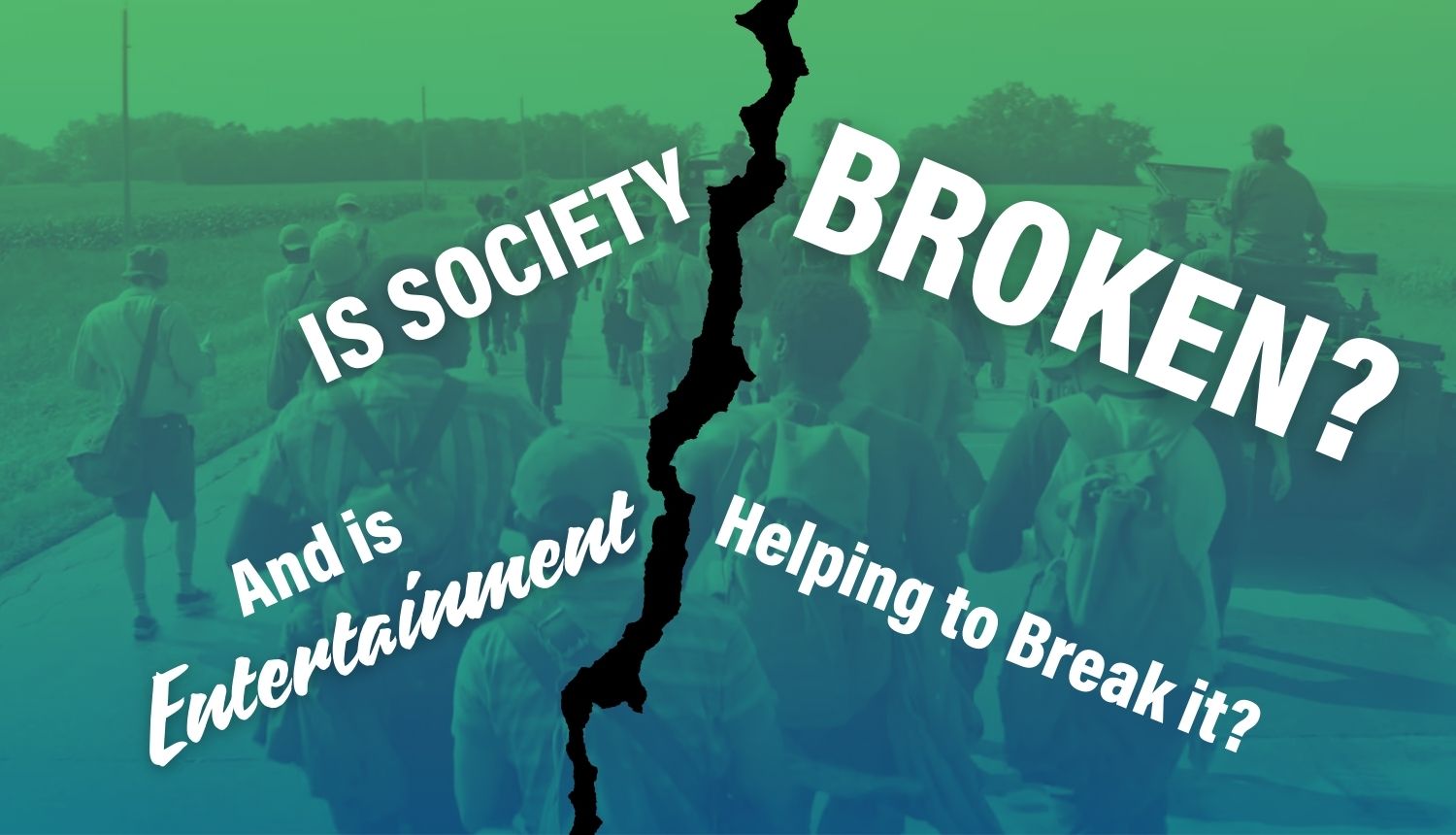The Long Walk takes moviegoers into a dystopian America, where every year, a handful of boys and young men sign up to walk as far as they can, night and day, without stopping. And if they do stop, or even slow down, they’re killed.
When its two main protagonists hear another gunshot behind them, one turns to the other and essentially says, I thought I would get more used to this part.
That’s what I’m afraid of, the other answers.
I was thinking about that exchange when I heard about the murder of conservative activist Charlie Kirk. Moments after the 31-year-old was shot by a sniper Sept. 10, the bloody video landed on social media platforms, sweeping through newsfeeds like a tsunami. Anyone who wanted to see the video could find it. And those who didn’t want to see it? Tough luck.
How many kids and teens saw Kirk die? It’s hard to say. But we know that, for those who did see it, the impact will likely leave a mark.
USA Today interviewed several mental health professionals in the wake of the Kirk shooting, and the consensus is clear: Violent videos and images can impact us deeply.
“The repeated posting of graphic images can lead to desensitization and dehumanization, where people become numb to what they are watching, stop seeing victims as individuals who have lives and families and stop caring,” Sarah Parkinson, assistant professor of political science and international studies at Johns Hopkins University, previously told the paper.
But it’s not just real-world violence that can be an issue. Countless studies suggest that on-screen violence, be it real or simulated, can be linked to aggression and desensitization.
And that brings us back to The Long Walk—a violent movie that decries violence.
The young men participating in the Walk are victims, the movie tells us. People lining the streets to watch the contestants pass are called vultures. The fact that every step is being televised is treated as loathsome. How can a society show such horrors? We’re supposed to ask.
And we ask ourselves such questions as we sit in a theater, grabbing another handful of popcorn, watching another teen receive a bullet to the skull.
Is context important? Of course it is. We know the blood and bone we see in The Long Walk is the product of a competent Hollywood visual effects department, and studies suggest that does make a difference. But even if fictional violence doesn’t have the same impact on us as the real thing does, such exposure still numbs us, bit by bit. And as that desensitization grows, so does the film industry’s desire to make its violent movies ever more violent—to try to shock desensitized moviegoers into feeling horror. Revulsion. Something.
Earlier this year, a study by the Annenberg Public Policy Center found that violence in entertainment has gone up—way up—in the last 20 years. In fact, rates of firearm violence in the most popular films have increased by 200% since 2000. That coincides with a rise in gun violence over the last two decades, especially involving teens.
“Our findings are consistent with the hypothesis that the portrayal of guns in popular entertainment may play a role in promoting their use for violent purposes among young people,” said Dan Romer, the study’s lead author.
We cannot speculate what was in the killer’s mind when he pulled the trigger. But the society in which that killer lived and learned is growing angrier and more desensitized than ever.
Many around the country are questioning how we have arrived at this horrific point. David Chalian, a reporter and analyst for CNN, said, “I think we are broken, potentially beyond repair.”
As Christians, we know the answer to brokenness: Jesus. But we are an increasingly secular society—and one that often tries, not to fix what’s broken, but to mask it. We try to forget our troubles through entertainment. We try to salve our pain through social media.
But what if entertainment and social media are breaking us more? What if we’re literally paying to break?
We’re exposed to a lot of violence now. And thanks in part to Hollywood, we’re getting pretty used to it.


